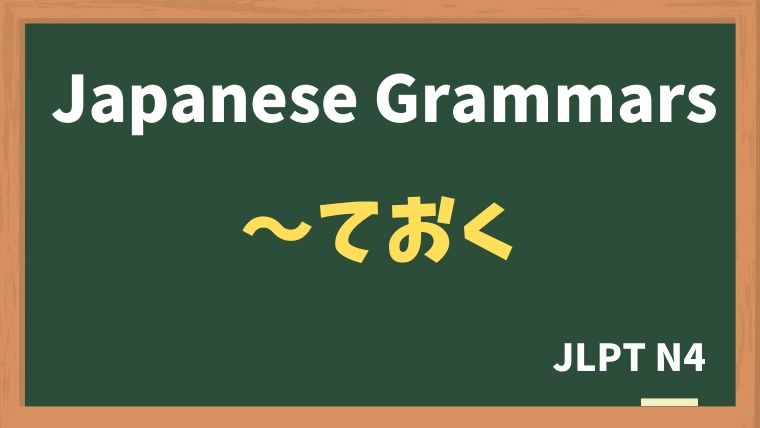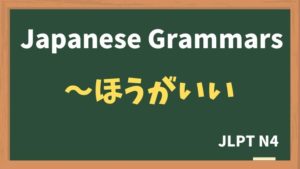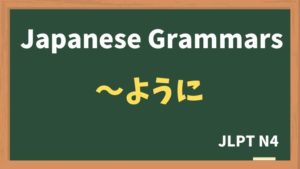
Explanation:〜ておく
fa-check-circleMeaning
"do something in advance"
Used to indicate that an action is done in preparation for something or to leave something in a particular state for future convenience. It’s commonly used when tasks are completed proactively or as a preventative measure.
fa-check-circleForm
V(te form) + おく
fa-check-circlePoints
- Preparation for Future Use: "〜ておく" highlights that an action is done now with the future in mind.
- Proactive or Preventative Action: Often used to express actions taken in advance to prevent issues later on.
- Temporary State: Sometimes it suggests leaving something in a certain way temporarily or as a preparation.
fa-check-circleJLPT Level
N4
Sample sentenes
来週、タイに 旅行に 行くので、ホテルを 予約しておきます。
I will book a hotel in advance because I will travel to Thailand next week.
友達の 結婚式に 参加するから、新しい ネクタイを 買っておきます。
I will buy a new necktie in advance because I will attend a friend’s wedding party.
バスに 乗る前に、薬を 飲んでおきます。
I will drink medicine before I ride a bus.
友達が 家に 来る前に、部屋を 掃除しておきます。
I will clean my room before my friend comes to my house.
もうすぐ テストが あるから、習ったことを 復習しておきます。
I will review what I learned because there is an exam soon.
あとで 彼女と デートだから、シャワーを 浴びておきます。
Since I have an date with my girlfriend, I will take a bath in advance.
テストを 始める前に、問題用紙の 注意事項を 読んでおいてください。
Please read the note on the question sheet in advance before you start the test.
来週、台風が 来るから 食べ物と 水を 買っておきます。
Since the typhoon will come, I will buy water in advance.
来週 家で パーティーをするので、 たくさん お菓子を 買っておきます。
Since I will hold a party at my home, I will buy many snacks in advance.
来週 彼女の 誕生日ですから プレゼントを 用意しておきます。
I will buy a present in advance, because next week is my girlfriend’s birthday.
Vocabulary
| Japanese | English |
| よやくする | to book |
| けっこんしき | wedding ceremony |
| さんかする | to join / to attend |
| ネクタイ | tie |
| そうじする | to clean |
| ならう | to learn |
| ふくしゅうする | to review |
| シャワーをあびる | to take a shower |
| もんだいようし | question sheet |
| ちゅういじこう | caution / note |
| おかし | snack |
| よういする | to prepare |
Comparison:"〜ておく" vs. "〜てある"
While "〜てある" indicates a state resulting from an action already done, "〜ておく" emphasizes doing an action in preparation for something.
にもつを まとめてある。 (The luggage is packed.) — The luggage is already packed, focusing on the current state.
にもつを まとめておく。 (I’ll pack the luggage in advance.) — This implies intentional preparation for later.






